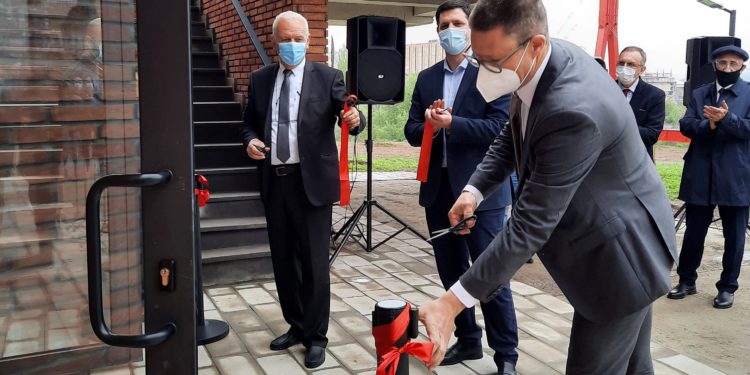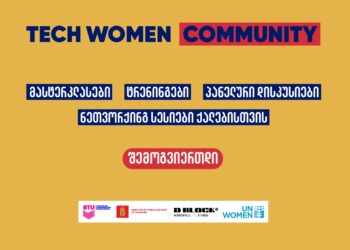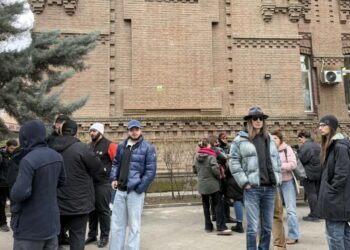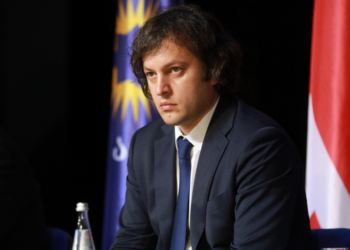Beekeeping has always been a cherished and special field in Georgian agriculture. However, this is also one of the areas where clear prospects are conjoined with hitherto unrealized potential, and for its further development, the Czech Embassy, in cooperation with the Tbilisi City Hall and the trade union association “Agora,” recently opened a regional multifunctional beekeeping center in Tbilisi. The center boasts the latest European equipment, with the total amount of investment of 405,565 Euros. According to its supervisors, the aim of the center is to promote the development of beekeeping in the country, as well as the export of products related to this field to the international market. GEORGIA TODAY interviewed Tengiz Svanidze, Director of Agora, and Jan Sliva, Head of the Czech Development Agency, to find out more.
“There was an institute of beekeeping in Georgia, which served Transcaucasia,” Svanidze tells us. “This beekeeping laboratory no longer exists, which is why a kind of expertise vacuum has been existing in this field for years. That is how the idea was born to restore it all. Our association had a small project with the Czech Embassy, which funded a small beekeeping farm in Gardabani. So we started the relationship with the Czech Embassy. Then they became interested in the idea of creating a center of expertise, a go-to place for beekeeping excellence to help the field develop further. After a long cooperation with them, when the project was completed, we decided to establish a structure similar to the beekeeping laboratory in Tbilisi, which we conditionally called a multifunctional regional center for beekeeping development.”
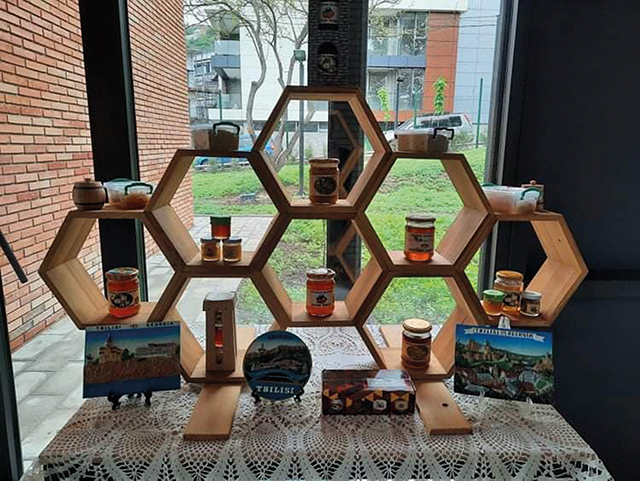
Why regional?
Regional, because we cooperate with Azerbaijani and Armenian beekeepers. There was no such precedent in the Caucasus region, and we thought it should be done in Georgia; in particular, in Tbilisi, where it all came together. Our idea was liked by both the Czech Embassy and the Czech Development Agency. Following the design of the building, the Czech Development Agency allocated funding for both the architectural part and the construction. We started construction in March 2020 and now, a year later, we have completed it.
Tbilisi City Hall allocated 2000 square meters in Bagebi, which was handed over to the center for 10 years. We will be offering many useful and good things: seminars, various trainings, inviting specialists from the Czech Republic to give lectures and trainings to amateur beekeepers and professionals. The function and purpose of such trainings is to facilitate the export of our products to Europe and to further popularize them. One of the challenges Georgian honey production faces today is that we do produce export-quality honey, but we can’t sell it, so the center will help develop marketing as well.
How does Georgian honey differ from the products available in other regions?
The only thing that distinguishes Georgian honey from honey produced in other countries is chestnut honey, which is practically not found anywhere else. This unique product is made with the chestnut flower, and is called mono-honey. Chestnut forests bloom here from July 10 to 25. There are chestnut forests where nothing else blooms around except for the chestnut flower, and the bees do not take honey from any other plant. Of course, there are places in Georgia where other plants bloom along with the chestnuts, but honey taken in such places is not called chestnut honey because it contains “impurities.”
The goal of our center is to create products that will be sold on the European market. Honey is not taxed when imported to Europe, so, if we meet the standards there, we have an open market to explore. That’s what we’re all working towards.
How do the Czechs evaluate the project?
“The Czech organization allocated money and studied the situation of beekeeping in Georgia. They concluded that Georgia has excellent potential to export honey. If this is given the right direction, export is possible. That is why this project was launched.”
“This is proving to be a nice sustainable enterprise,” Jan Sliva, Head of the Czech Development Agency, noted. “And, of course, when the Czech Development Agency finances something, it is also interested in a sustainable use.
“Beekeeping is very important for Georgians, their honey is excellent. So, we asked our Georgian colleagues, how can we help in this? I hope this center will contribute to even better beekeeping practices. It’s very important to have access to good labs to make sure that the honey is produced without pesticides and any poisonous agents,” Sliva says.
“We hope this center develops into a center of expertise and excellence in the beekeeping sector. We provided funding for the facility, we provided the equipment, and it’s now up to the Georgian beekeepers to make the most of it, as the actual education and expertise is performed by the local side. They do this best, we just provide the means for them to develop further. Usually, in our projects, when and where experts are needed, we send them from Prague, but not in this case here, as the Georgian expertise is already at a high level.”
Interview by Vazha Tavberidze & Lali Patsia

